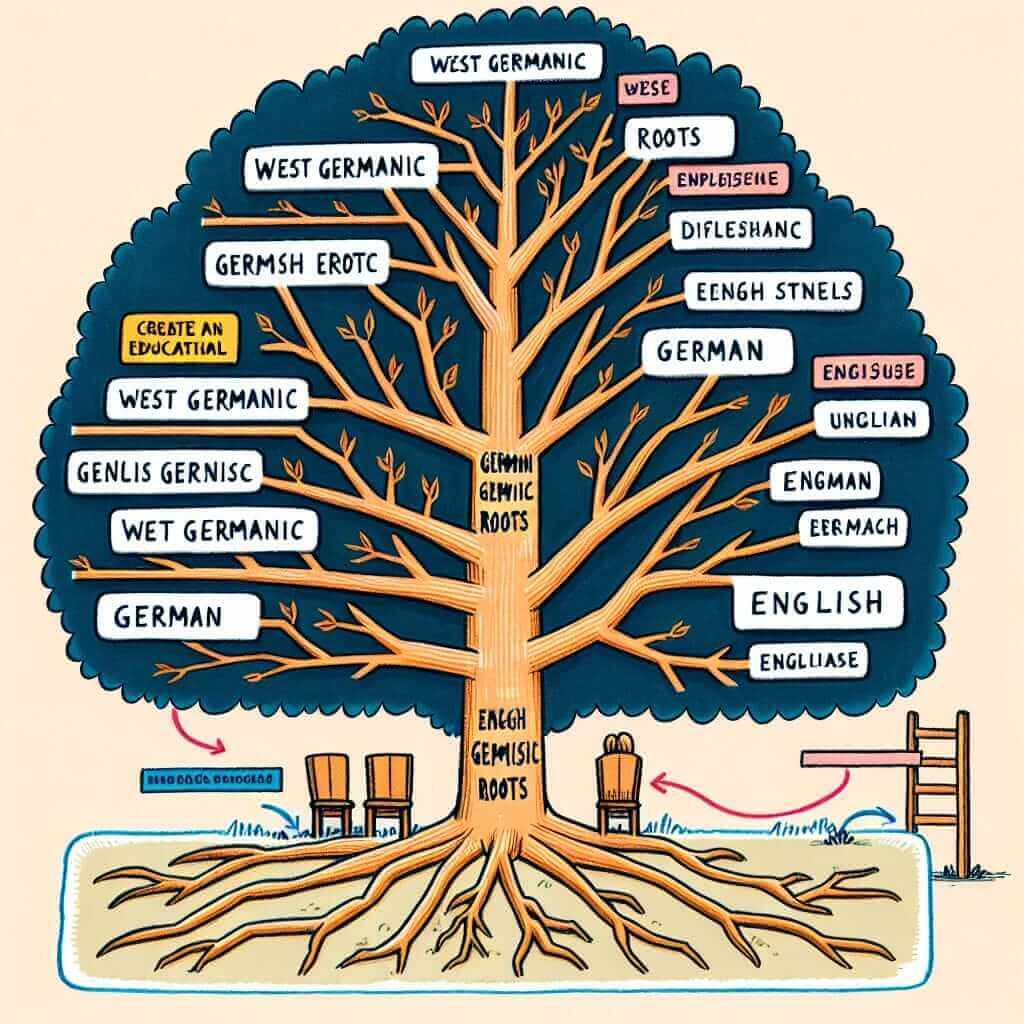As an IELTS instructor with over 20 years of experience, I often encounter the question, “Why do German IELTS test takers tend to achieve high scores?” While there’s no single answer, certain contributing factors consistently emerge. This article explores those factors, offering insights into the German approach to language learning and IELTS preparation.
The German Language Landscape: A Solid Foundation
One key factor lies in the nature of the German language itself.
Similarities with English: A Head Start
German and English share common roots, both belonging to the West Germanic language family. This linguistic kinship translates to:
- Shared vocabulary: Many words are similar in spelling and meaning, making vocabulary acquisition less daunting for German speakers. For example, “Haus” in German means “house” in English, and “Buch” translates to “book.”
- Grammatical parallels: The grammatical structures of German and English, while not identical, share similarities. For instance, both languages utilize a subject-verb-object sentence structure.

A Culture of Language Learning: Embracing Multilingualism
Germany boasts a strong culture of language learning. From a young age, German students are exposed to multiple languages, often starting with English in primary school. This early and consistent exposure fosters:
- Linguistic awareness: Learning multiple languages enhances overall linguistic awareness, making it easier to grasp new grammatical concepts and vocabulary.
- Positive attitudes towards language learning: Multilingualism is encouraged and often seen as a valuable asset, creating a positive and supportive learning environment.
A Strategic Approach to IELTS Preparation
Germans are known for their meticulous and structured approach to learning, and IELTS preparation is no exception.
Emphasis on Accuracy and Structure: Mastering the Fundamentals
German education emphasizes grammatical accuracy and a strong understanding of linguistic structures. This focus on precision translates well to the IELTS, particularly in the Writing and Speaking sections, where grammatical range and accuracy are key scoring criteria.
A Culture of Self-Discipline and Hard Work: The Value of Diligent Preparation
German culture values hard work and dedication, qualities reflected in the approach to IELTS preparation. Test-takers invest significant time and effort in:
- Structured study plans: Creating organized study schedules and adhering to them diligently is common practice.
- Practice tests and mock exams: Regular practice with past papers and simulated test environments helps familiarize test-takers with the exam format and timing, reducing anxiety on test day.
Conclusion: Lessons to Be Learned
While other factors may contribute to the success of German IELTS test-takers, a strong language learning foundation, a meticulous approach to preparation, and a culture that values hard work are consistently observed. These insights offer valuable lessons for all IELTS aspirants:
- Embrace the power of early language learning: Start early, be consistent, and explore different languages.
- Prioritize accuracy and structure: Master the fundamentals of English grammar and vocabulary.
- Develop a structured study plan and stick to it: Diligent practice and consistent effort are key.
Remember, achieving a high score on the IELTS is attainable with the right approach, dedication, and the willingness to embrace the journey of language learning.